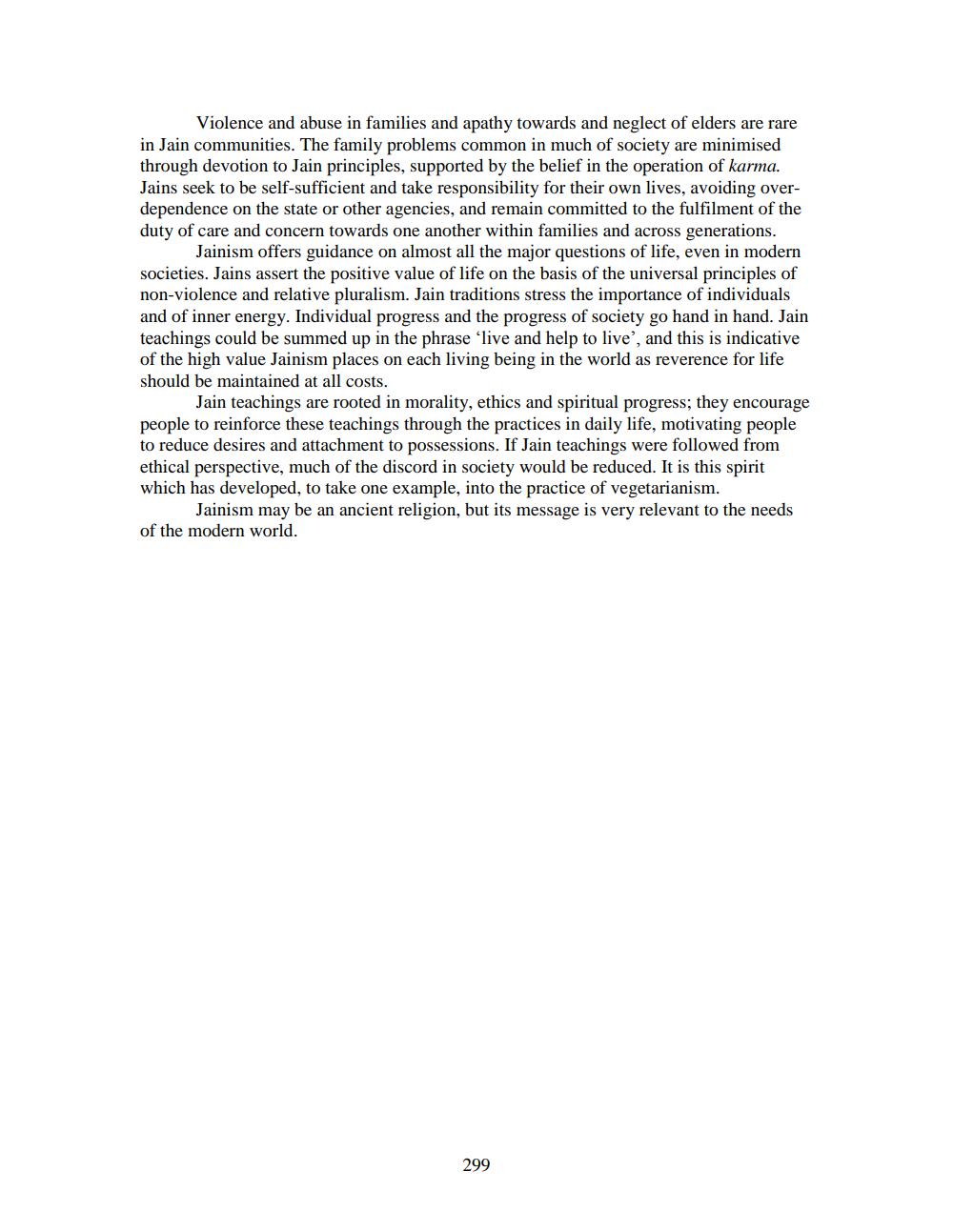________________
Violence and abuse in families and apathy towards and neglect of elders are rare in Jain communities. The family problems common in much of society are minimised through devotion to Jain principles, supported by the belief in the operation of karma. Jains seek to be self-sufficient and take responsibility for their own lives, avoiding overdependence on the state or other agencies, and remain committed to the fulfilment of the duty of care and concern towards one another within families and across generations.
Jainism offers guidance on almost all the major questions of life, even in modern societies. Jains assert the positive value of life on the basis of the universal principles of non-violence and relative pluralism. Jain traditions stress the importance of individuals and of inner energy. Individual progress and the progress of society go hand in hand. Jain teachings could be summed up in the phrase 'live and help to live', and this is indicative of the high value Jainism places on each living being in the world as reverence for life should be maintained at all costs.
Jain teachings are rooted in morality, ethics and spiritual progress; they encourage people to reinforce these teachings through the practices in daily life, motivating people to reduce desires and attachment to possessions. If Jain teachings were followed from ethical perspective, much of the discord in society would be reduced. It is this spirit which has developed, to take one example, into the practice of vegetarianism.
Jainism may be an ancient religion, but its message is very relevant to the needs of the modern world.
299




